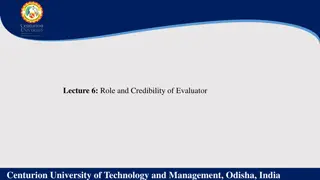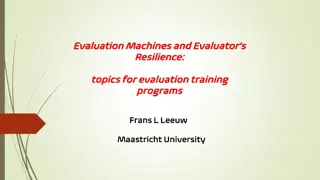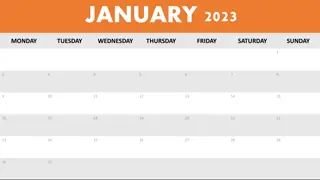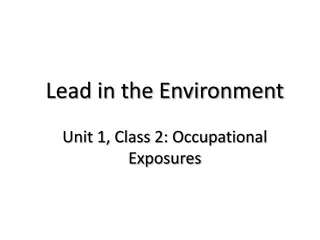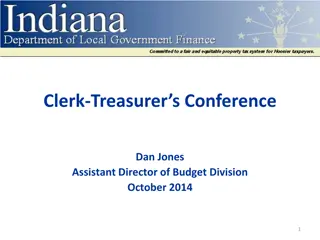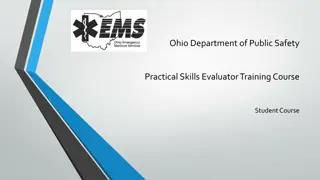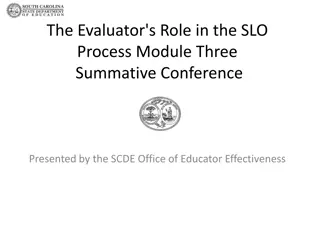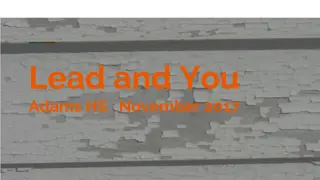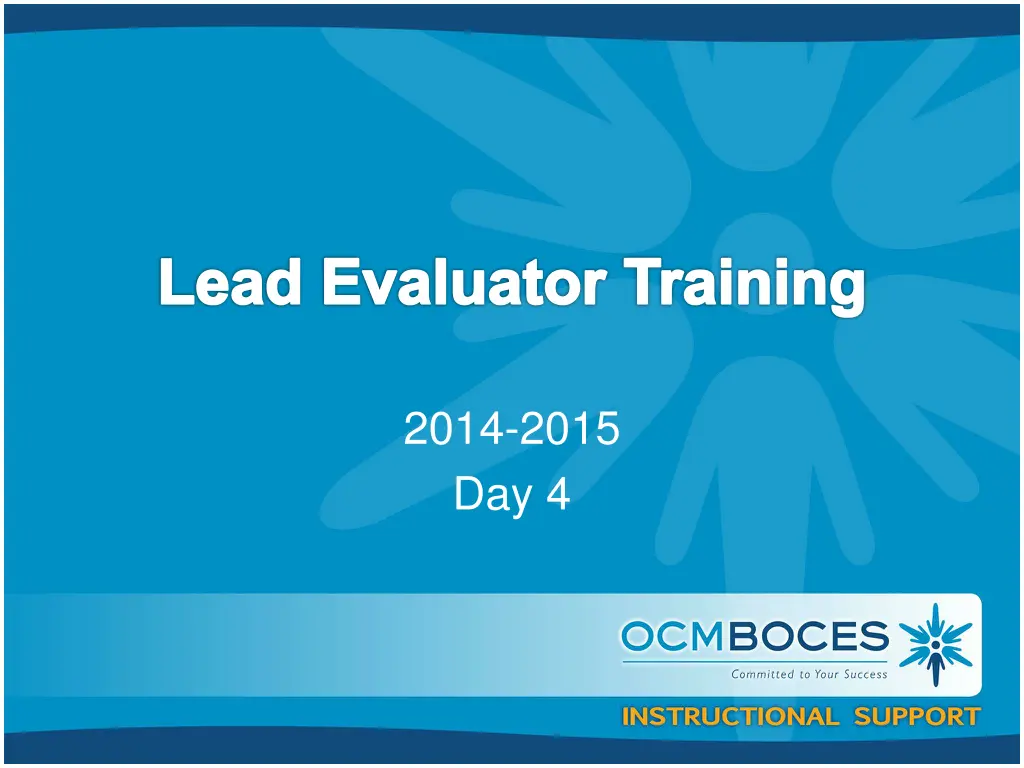
Lead Evaluator Training Insights
Delve into comprehensive Lead Evaluator Training insights for the academic year 2014-2015, covering topics such as SLOs, ELA/Literacy shifts, time management, evidence collection, and more to enhance growth-producing feedback and overall evaluation processes.
Download Presentation

Please find below an Image/Link to download the presentation.
The content on the website is provided AS IS for your information and personal use only. It may not be sold, licensed, or shared on other websites without obtaining consent from the author. If you encounter any issues during the download, it is possible that the publisher has removed the file from their server.
You are allowed to download the files provided on this website for personal or commercial use, subject to the condition that they are used lawfully. All files are the property of their respective owners.
The content on the website is provided AS IS for your information and personal use only. It may not be sold, licensed, or shared on other websites without obtaining consent from the author.
E N D
Presentation Transcript
Lead Evaluator Training 2014-2015 Day 4
Agenda What have you been up to? How are you doing with SLOs? Mini-lesson: Six shifts in ELA/Literacy Mini-observations Managing your time Evidence collection Growth-Producing Feedback
The Year at a Glance Ongoing End of the Year Beginning of the Year Beginning of the year meeting Standards I and II SLO and local (LAT) target setting Evidence Submission by Teacher Evidence Collection Sharing the evidence Feedback Conversations Evidence from the year collected Compare collected evidence to the rubric Summative score determination and communication
SLO Warm Up Activity What SLO questions and decisions have you encountered so far? At your tables, each person should share one question you faced and how you answered.
SLO Q & A SLO SLO HELP 5 HELP 5
SLO Setting & Beginning of the Year Meetings What is your strategy? Is the time blocked in to your calendar? How are you protecting the time? What s the status? How are you keeping track? How s the culture?
SLO Celebration When the SLO setting is over, is that worth recognition? Celebration? What are some of the ways you do things in school to keep things positive?
ELA/literacy and the Common Core
Six Shifts of ELA/literacy A quick look at an engageNY video Publishers criteria has more info November 2011 issue of NTnews Before/after examples of the shifts
Six Shifts: ELA/Literacy Balancing Informational & Literary Texts (Grades PK-5) Knowledge in the Disciplines (Grades 6-12) Staircase of Complexity Text-based Answers Writing from Sources Academic Vocabulary
I already do this
What might the shifts look like? What the shifts aren t?
Are you seeing this in your school? What are you going to do about it?
The Power of Mini-Observations
The Year at a Glance Ongoing End of the Year Beginning of the Year Beginning of the year meeting Standards I and II SLO and local (LAT) target setting Evidence Submission by Teacher Evidence Collection Sharing the evidence Feedback Conversations Evidence from the year collected Compare collected evidence to the rubric Summative score determination and communication
SORT TO ALIGN WITH YOUR FRAMEWORK Interpret: Clarify COLLECT DATA (Evidence) Conclusions NO! Impact on learning Support needed
What is it going to take? Must have a goal Make it a numerical target (not fuzzy) Make it realistic How will you record and keep track of your notes? What do you have to do with your schedule, routines, style, etc. in order to build this into your day?
Monday Tuesday Wednesday Thursday Friday 7a - 8a 8a - 9a 9a - 10a 10a - 11a 11a - 12p 12p - 1p 1p - 2p 2p - 3p 3p - 4p 4p - 5p
Monday Tuesday Wednesday Thursday Friday 7a - 8a 8a - 9a 9a - 10a 10a - 11a 11a - 12p 12p - 1p 1p - 2p 2p - 3p 3p - 4p 4p - 5p
Monday Tuesday Wednesday Thursday Friday 7a - 8a 8a - 9a 9a - 10a 10a - 11a 11a - 12p 12p - 1p 1p - 2p 2p - 3p 3p - 4p 4p - 5p
Monday Tuesday Wednesday Thursday Friday 7a - 8a 8a - 9a 9a - 10a 10a - 11a 11a - 12p 12p - 1p 1p - 2p 2p - 3p 3p - 4p 4p - 5p
Monday Tuesday Wednesday Thursday Friday 7a - 8a 8a - 9a 9a - 10a 10a - 11a 11a - 12p 12p - 1p 1p - 2p 2p - 3p 3p - 4p 4p - 5p
Take Out Your Calendar What evidence is there of: Beginning-of-the-Year Meetings Evidence collection visits to classrooms Post-visit growth-producing feedback conversations?
Evidence Collection Do a mini-observation Collect evidence Code the evidence Sort it Show it to your neighbor 25
Growth-Producing Feedback
Qualities of Growth-Producing Feedback? From Man on Fire, what are the qualities of Growth-Producing Feedback? Take a look at Paula Rutherford s list Check out a teacher-principal conversation 27
Checking in with Kim Read what Kim has to say about feedback to teachers Discuss as a table group: how does his advice compare to your walkthrough/mini experiences? 28
Conversations (example) Form a triad Each person gets a different colored half- sheet Prepare your opening line (<30 seconds) First triad member says opening line to the two others Two others give first person feedback Repeat the process until everyone in the group has gone 29
Conversations Go back to the mini-observation Review the Evidence Prepare your thoughts for your follow-up conversation with the teacher. Make sure you have your opening line ready! Role-play the conversation. Repeat. 30
Conversation, Questions & Discussion Respect & Rapport COLLECT DATA (Evidence) Conclusions Impact on learning Support needed
Next Session October 14th Agenda will include A little more on ELA Evidence Collection Ongoing Growth-Producing Feedback
Questions Hits, Misses, and Suggestions




